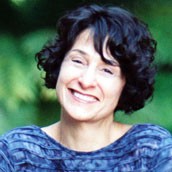I just finished reading Mary Johnson’s book, An Unquenchable Thirst. I want to speak of it and of what knowing Mary has meant to me over the past several years as I've come to know her through A Room of Her Own Foundation events.
For 20 years, Mary was an aspirant, and then a nun, in an organization in which individual expression was not a community value. Everything external worked to prevent her from becoming an artist. When I know that Mary has tiptoed downstairs at 5:00 on the morning of a retreat without waking me up, and when she devotes so much of her writing year to planning the next AROHO event, I remember that she has lifelong habits cultivated inside a kind of mind I will never experience. I am reminded of Sylvia Plath’s beehives in her five bee poems: a humming goes on inside “the mind of the hive,” while its singular work is sealed unseen, accomplished by many.
a community value. Everything external worked to prevent her from becoming an artist. When I know that Mary has tiptoed downstairs at 5:00 on the morning of a retreat without waking me up, and when she devotes so much of her writing year to planning the next AROHO event, I remember that she has lifelong habits cultivated inside a kind of mind I will never experience. I am reminded of Sylvia Plath’s beehives in her five bee poems: a humming goes on inside “the mind of the hive,” while its singular work is sealed unseen, accomplished by many.
Mary has taken the best of the convent mind and deployed it to serve in an alternate universe. Ours. She is a most extraordinary illustration of how stamina lifts talent. Her habits of preserving something of internal value while running a decade-long marathon allowed her to complete a draft of her first book; a proposal to an agent, a revised proposal for publishers; and the many revisions of her book—and to unearth and articulate the complex feelings of growing up in an cloistered, religious society—I would call it a “cult” if I didn’t think I would offend my Catholic sister-in-laws and friends.
It would have been far easier for Mary to have worked as a full-time conference organizer or Italian teacher than to write her memoir. Once she started the project a decade ago, she must have realized how difficult reliving her early life would be. The only story worth telling was the story that demanded she reveal her secrets, sexuality, trespasses and broken promises—those she broke and those she suffered; how she disappointed the world’s most famous woman; how she experienced and lost love. Much more daring than anything she reveals about institutional religion or the Sisters of Charity is her frank portrayal of her younger self.
It would also have been easier for Mary to settle for her publisher’s marketing plans for her book; instead she supplements them with her own web page and social media. She would rather be writing, but she is determined to use the full range of her skills, even those she’s not crazy about deploying. She has to learn to put on makeup, for god sakes, a step she skipped in the convent.
After two decades in a convent and one as an apprentice writer, she has made at least two enormous leaps—if marriage to god counts as one—but she’s at the beginning of her adventure, not the end.
Mary is one of the most spiritual people I know, by which I mean she draws light to every personal encounter. To hear her laugh and watch her red curls shake—to look into eyes that see me—makes me feel strong, reveals to me the contours of my own life, and how they might come together as hers have. If I can locate that life, it is worth living.
What has Mary to teach me? (1) Talent without stamina is like a boat in dry dock. (2) Most of us don’t get to write and only write, even if we’re good, even if we snag a book deal. (3) An artist need not be a loner: she may care deeply about community—may be attached and rewarded by community—but not necessarily during her writing time. (4) An artist must at some point, maybe more than once, take a leap off a steep cliff. I leave that cliff for each of us to define. The thrill is the moment in mid-air. (5) There is a market for truth. Amen.
...From Jayne Benjulian. Jayne Benjulian writes about artistic, ethical and social issues in the performing arts and literature. She has also published journalism for Money, Ms. and The Atlanta Journal and Constitution, and she is a contributor to Howlround, the new play ‘zine. Benjulian was director of new play development at Magic Theatre in San Francisco, executive producer and creative leader at a number of Silicon Valley companies, and chief speechwriter at Apple. She was Fulbright Lecturer in Language and Literature at the Université Lyon III in France and Danforth teaching fellow at Emory University, where she earned an M.A. in American and British Literature. She held teaching appointments in writing and literature at several independent schools and the University of San Francisco and is currently an MFA candidate at the Warren Wilson Program for Writers.